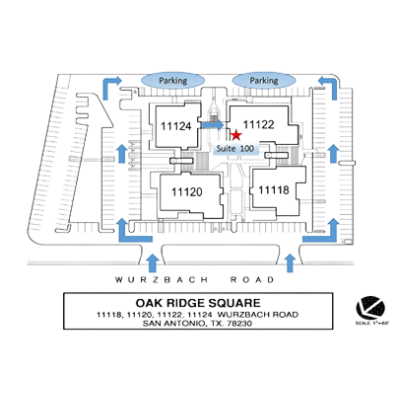I just finished probating a will. It was different from my other probate cases. What made it different was my client and I weren’t presenting the case to the judge within four (4) years of the death of my client’s mom. Instead, we were presenting the will nearly six (6) years after her death. This fact required the judge to not only rule on whether the will was properly executed and whether the will had a proper self-proving affidavit. The judge had to decide whether my client’s actions before filing the application to probate the will were prompt or reasonably diligent under the circumstances.
Who’s delay?
So, why was the focus on my client’s conduct? The general rule is a will may not be admitted to probate after the fourth anniversary of the person’s death. There is an exception. The exception centers on the whether there is proof that the applicant (in my case, the client) for probate of the will was not in default in failing to present the will for probate on or before the fourth anniversary of the person’s death. Generally, default in this type of case means the failure to probate a will due to the absence of reasonable diligence on the part of the party offering the document to the court for validation. Also, ignorance of the law isn’t an excuse in this situation. A review of these types of court cases finds judges deciding that a person in custody of the will is charged with knowledge that it must be filed for probate within the statutory period. This means a person who has custody of a will and refrains for the statutory period from presenting it for probate for personal considerations or under the assumption that his title to real estate is safe without probating the will is in default. Yikes!
Where you prompt?
What we presented to the judge through witnesses’ testimony was prompt action of my client once she came into possession of the will and after she discovered there was a need to probate it. My client’s parents died about 3 ½ years apart. Her mom died first, and her dad had custody of the wills (hers and his). When her dad died, my client was the next person up to serve as executor under her dad’s will. She timely presented her dad’s will to the court and the judge validated it and named her Independent Executor. Later, when she was preparing to sell her parent’s home there was a problem with the title because her mom’s will was never probated by her dad. She took action to address the issue immediately.
Prove it!
The judge found my client acted promptly when presenting her mom’s will to the court. Here’s a sample of the evidence presented through testimony:
- When did you learn of the existence of a will? (Testimony established that my client knew about the will, but her father was in possession of it, and he was the named executor.)
- What did you do to locate it? (She didn’t do much because her dad said everything was in place and probate wasn’t necessary.)
- What did you do when you located it? (See above.)
- When did you get possession of the will? (Testimony established that my client didn’t have possession of the ill until her dad died, which unfortunately happened about 3 ½ years after her mother’s death.)
- When did you determine there was a need to probate? (My client testified that although her dad told her there was no reason to probate her mom’s will, he was wrong. She learned she couldn’t sell her parent’s house until the house’s title was cleared. She had timely probated her dad’s will and she immediately acted on probating her mom’s will after she discovered it was necessary. Her first step was to contact an attorney.)
- What actions were taken on her mom’s will once she had possession of it and determined there was a need to probate it? (The testimony established my client’s prompt action to present the will to Probate Court. She contacted attorneys. She met with one. She later met with me. She hired me and I filed the Application with the Court within 1 week of being hired.)
Show diligence.
The judge concluded based on the evidence my client wasn’t at fault for the untimely filing of the will. The judge found she acted promptly and with reasonable diligence after learning of the need to probate her mom’s will. The judge ordered the will accepted as a Muniment of Title under the circumstances.
This was the best possible result for my client under the circumstances. If you are facing difficult circumstances involving the probate of a will don’t hesitate to contact me at bud.glavy@glavylaw.com or at 210-880-1777. You’ll received the personal attention you deserve.
The post How Long Do I Have to Probate A Will in Texas? Over 4 Years: Is it Too Late? first appeared on GlavyLaw.


